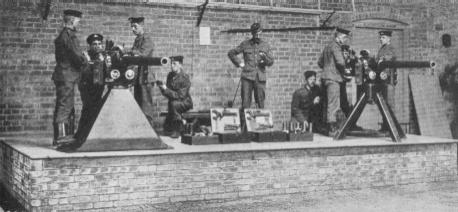These guns were originally known as "6-pdr Hotchkiss guns" and were introduced in 1884 for use against torpedo boats. Used during World War I on the Arethusa and early "C" class cruisers and a few submarines as well as on Monitors M.15 through M.33.
Many were subsequently used as sub-caliber and saluting guns which meant that they were still available in 1939. That gave these guns a new lease on life, as many were hurriedly converted back to shooting guns for small ships such as MTBs, MLs and "Flower" class corvettes. Some weapons were also adapted for coastal defense.
The original Mark I gun had a barrel and short jacket with a locking hoop screwed to the front of the jacket. The Mark I* had a different recocking lever, but in 1890 all guns were altered to this standard and all guns were then redesignated as Mark I. During World War II, the converted ex-saluting guns were designated as Mark I*. Mark I** was apparently not in service, while Mark I*** were converted single tube guns left over from the First World War. The Mark II was an army gun converted to fit on naval mountings. All had vertical sliding breech blocks.
A total of 3,984 guns were on naval lists, but at least 2,344 of these had been stricken by 1939. Of those that remained, almost all were Mark I.
| Designation | Hotchkiss 6-pdr / 8cwt QF Marks I and II |
|---|---|
| Ship Class Used On | Many |
| Date Of Design | 1883 |
| Date In Service | 1884 |
| Gun Weight | 849 lbs. (385 kg) |
| Gun Length oa | 97.63 in (2.480 m) |
| Bore Length | 89.8 in (2.280 m) |
| Rifling Length | 76.91 in (1.954 m) |
| Grooves | 24 |
| Lands | N/A |
| Twist | Uniform RH 1 in 30 |
| Chamber Volume | 46 in3 (0.754 dm3) |
| Rate Of Fire | 20 rounds per minute |
| Type | Fixed |
|---|---|
| Weight of Complete Round | 9.7 lbs. (4.4 kg) |
| Projectile Types and Weights | AP: 6.0 lbs. (2.72 kg) HE: 6.0 lbs. (2.72 kg) |
| Bursting Charge | N/A |
| Projectile Length | N/A |
| Propellant Charge | Prior to World War II: 0.243 lbs. (0.11 kg) CT World War II: 0.55 lbs. (0.249 kg) HSCT or 0.70 lbs. (0.318 kg) NF |
| Muzzle Velocity | 1,765 fps (538 mps) |
| Working Pressure | N/A |
| Approximate Barrel Life | 6,000 rounds |
| Ammunition stowage per gun 1 | Monitors: 500 rounds Others: N/A |
- ^Outfits for most ships included both AP and HE rounds.
| Designation |
|
|---|---|
| Weight | 896 lbs. (406 kg) (? - 8cwt conversions) |
| Elevation | Mark IC HA: -8 / +60 degrees Non-recoil: -5 / +38 degrees Mark IV HA: -15 / +90 degrees Mark VI, VI* and VI**: -5 / +70 degrees |
| Elevation Rate | Manually operated, only |
| Train | 360 degrees |
| Train Rate | Manually operated, only |
| Gun recoil | N/A |
Some mountings were modified during World War I to allow HA fire.
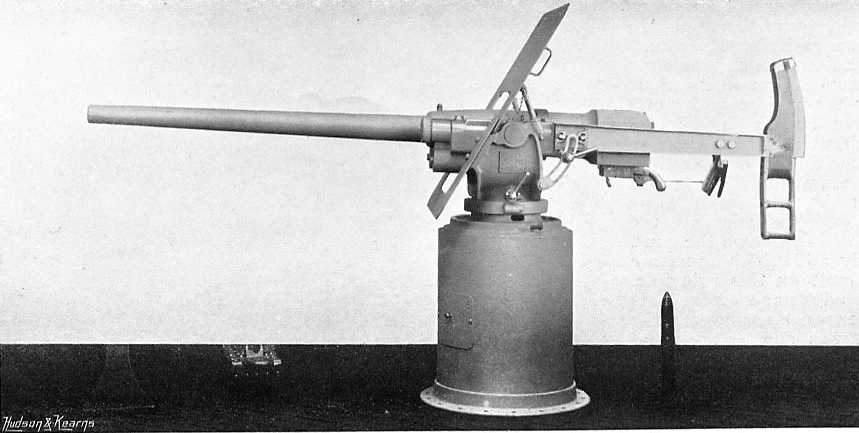

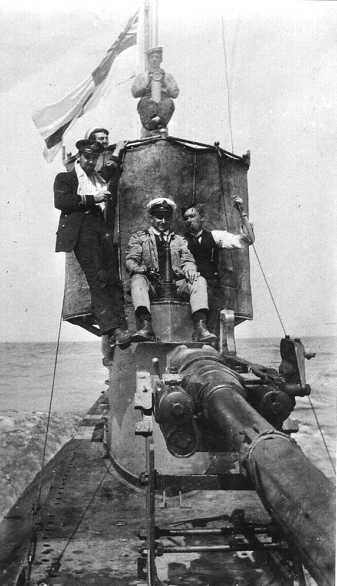
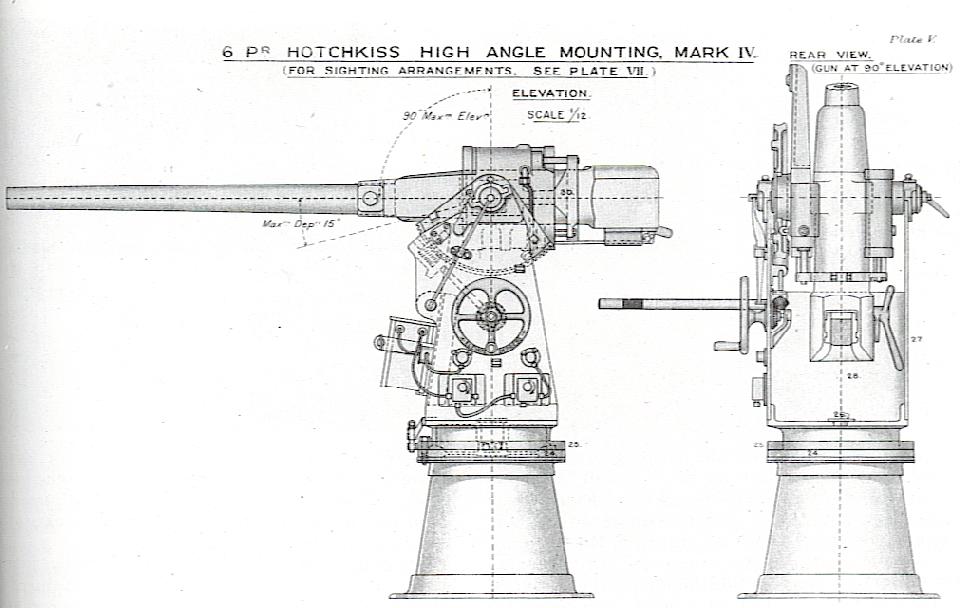
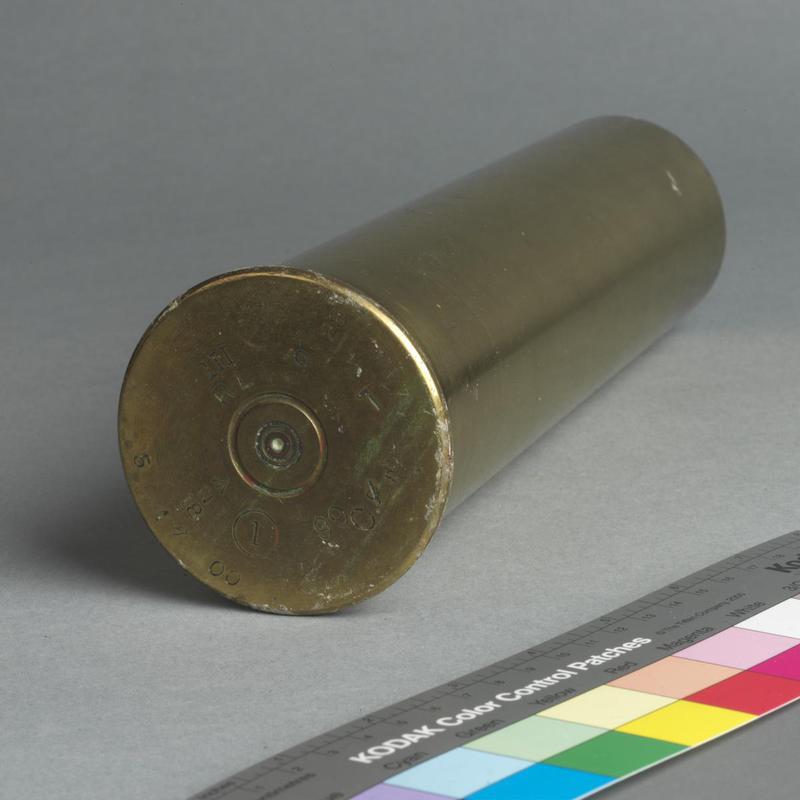
Data from:
- "Big Gun Monitors: The History of the Design, Construction and Operation of the Royal Navy's Monitors" by Ian Buxton
- "Naval Weapons of World War Two" by John Campbell
- "British Cruisers of World War Two" by Alan Raven and John Roberts
- "Navy and Army Illustrated Annuals, Volume VI - 1898"
Special help by Dave Perkins
- 28 May 2008
- Benchmark
- 15 December 2013
- Added photograph of casing

